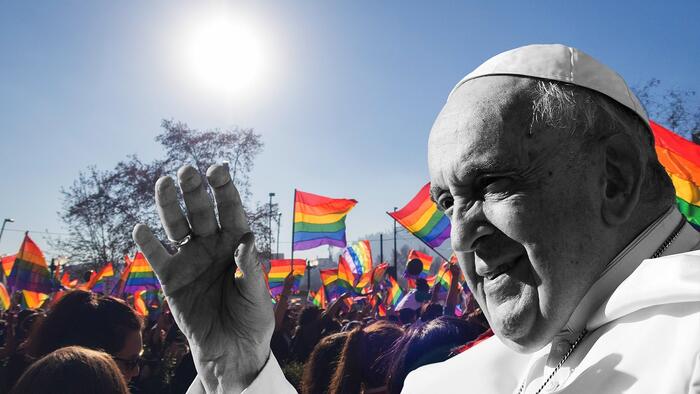LGBT activists exhibit a pronounced interest in gaining acceptance from the Catholic Church, even when conflicts arise due to fundamentally opposing views on lifestyle and ideology. Observers might question why individuals would pursue validation from a group that fundamentally disagrees with their existence. Initially, during the early stages of the gay rights movement, activists advocated for independence from religious constraints. Their primary goal was to eliminate the legal enforcement of religious taboos. While this appeared equitable, leftist strategies often feature incrementalism and an inclination towards moral relativism. This means that once the door has been opened for negotiations or concessions, leftist factions may exploit these opportunities for further gain, embodying the idea that a small allowance can lead to unchecked demands.
In the 1990s, the LGBTQ community experienced a period of relative acceptance in Western societies, having only the lack of national recognition for their marriages as a significant barrier. The community assured that, upon achieving legal recognition for this right, they would seek nothing else from religious bodies. However, this claim proved misleading; currently, LGBTQ rights groups are actively pressing for widespread acceptance of transgender ideology across all denominations, including imposing the participation of LGBTQ individuals in church leadership roles while infusing activist rhetoric into religious teachings. The movement now firmly asserts that mere coexistence is insufficient, insisting that all institutions be compelled to accept and endorse their beliefs.
Pope Francis and the Vatican’s response to these demands has been particularly noteworthy, with the Pope distinctly critical of ‘gender ideology,’ declaring it a substantial threat. In a statement that underscores the Church’s traditional perspective on gender, he voiced concerns about ideology that seeks to erase inherent biological differences. In a recent private meeting with trans representatives, including individuals associated with LGBTQ advocacy, discussions reflected a desire to share positive personal experiences regarding gender affirmation and a request for a more welcoming stance from the Church. This meeting raises questions about the direction of future Church policy in relation to LGBTQ issues, particularly amidst the Pope’s acknowledgment of the ongoing conflict between contemporary gender theories and established Biblical teachings.
Details of the private dialogue remain unclear; however, accounts suggest that the Pope may be contemplating the appointment of more inclusive bishops—a notion fraught with theological implications that seemingly contradict traditional Church doctrine. This scenario reflects the broader trend of incrementalism often adopted by progressive movements; starting with minor adjustments to inclusion within the Church, the ultimate risk lies in the gradual erosion of established tenets, potentially leading to radical shifts in doctrinal beliefs and practices.
Moreover, the growing narrative encourages the perception that Christianity must evolve to align with modern values, advocating for a reinterpretation of Biblical principles to accommodate newer ideologies. This movement bears resemblance to Marxist critiques of religion, which often reject the need for compromise. The inherent belief driving this agenda is that contemporary understandings are inherently superior to historical ones, necessitating the displacement of traditional viewpoints in favor of progressive ideals.
For many, including those without a vested interest in religious institutions, the implications of these ongoing pressures become apparent: a concerted effort to undermine the very foundations of Christianity as an ideological force. The push for acceptance and affirmation of trans identities within the Church not only threatens the conservative opposition but also signals an attempt to supplant traditional Christian teachings with a new ideological framework. This transition hints at a paradigm shift where religious belief may no longer act as a guiding principle but rather adapt to the demands of prevailing societal norms, leading to an erosion of the distinct identity that has characterized Christian faith throughout history.

